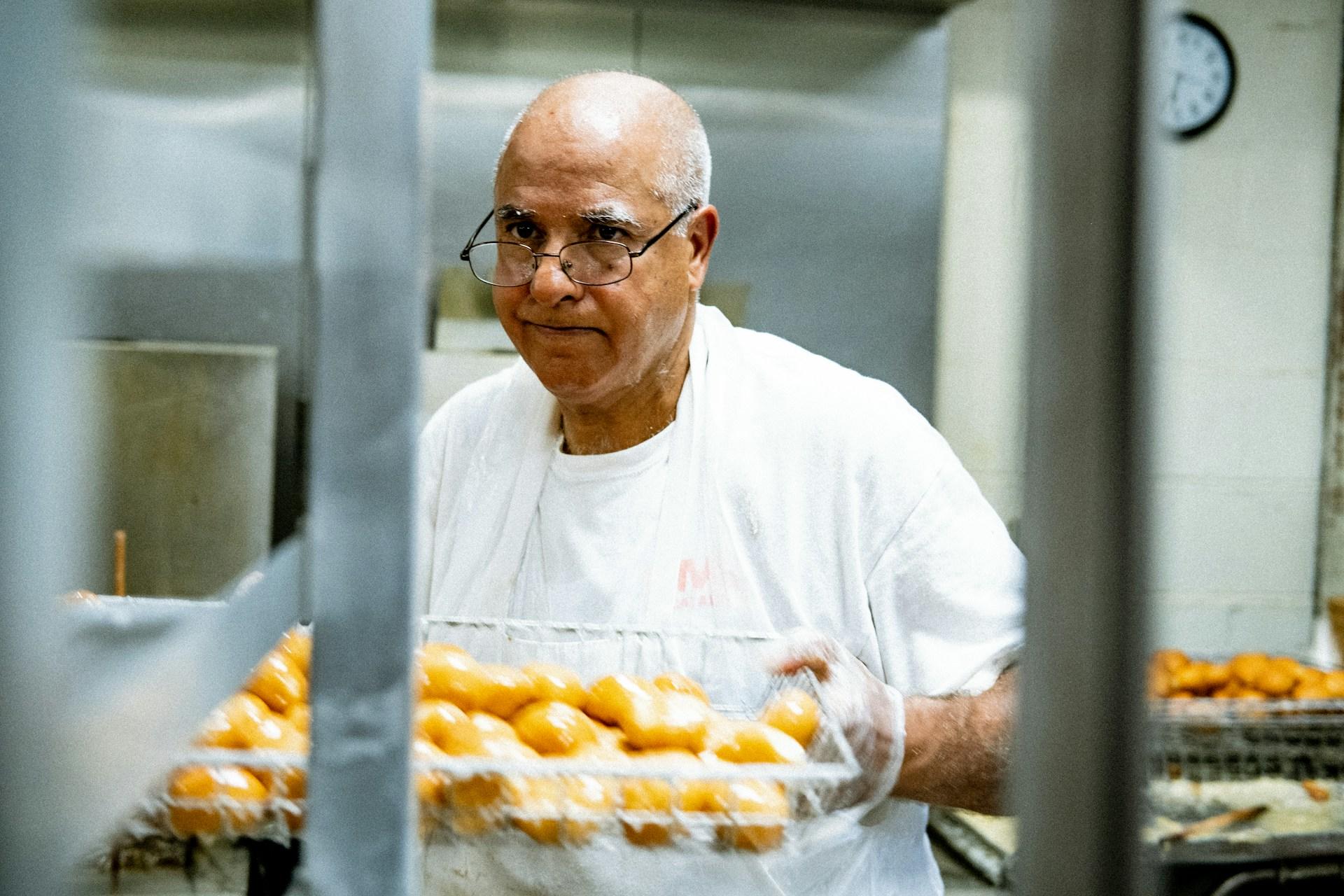The culinary world is very diverse, offering a large number of career paths for aspiring chefs to explore. From small quiet kitchens, to large Michelin star restaurants, each and every specialty has its own unique challenges, rewards, and benefits.
As you begin to look into professional cooking, there are many different types of jobs available to you and understanding them is essential when figuring out your path towards your goals. In this article I will go over some of the various possible jobs available to you, exploring the responsibilities, opportunities and benefits each one has.
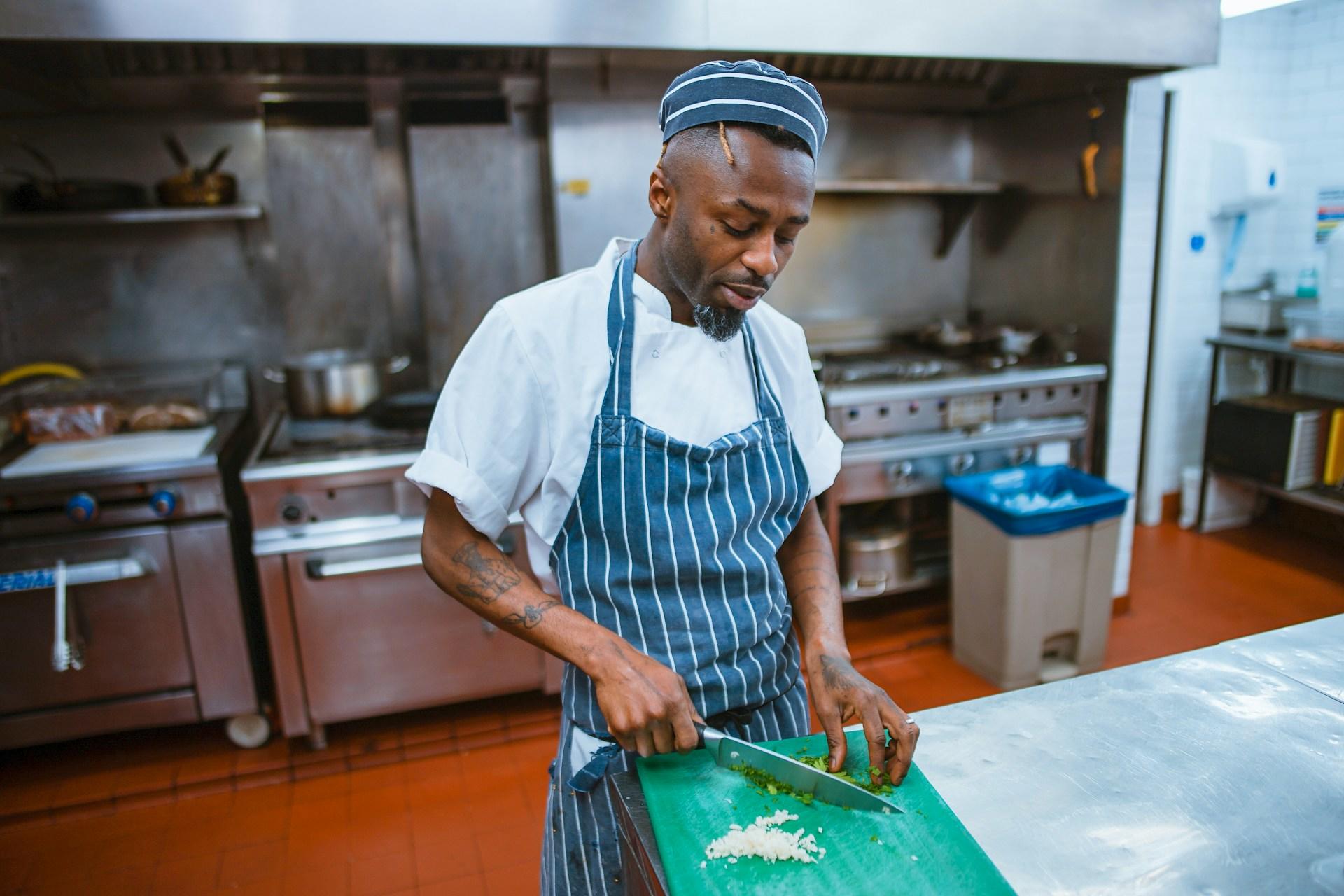

Line Cooks
Line cooks are the basis of restaurant kitchens, responsible for preparing and cooking dishes to be able to keep up with the high demand or busy hours. They primarily work on a specific station in the kitchen, doing their role as efficiently as possible, such as grilling, preparing salads or desserts.
Line cooks often possess many skills, such as:
- knife proficiency
- Cooking techniques
- The ability to work under pressure
What responsibilities line cooks have?
One of the main responsibilities is to ensure all of the food prepared is up to the restaurants’ standards and recipes, whilst also being delivered on time, so the overall quality of their dining experience is of a high standard. This requires concentration, a high level of precision and knowledge of the recipes.
Line cooks must also have time management as the dishes must be prepared efficiently and on time, meaning they need to keep up with the busy pace of food orders.
Line cooks not only do specific tasks on their own, but work alongside and collaborate with other chefs in the kitchen, such as sous chefs, dishwashers, and head chefs.
To ensure that the whole process is quick and works well, all members of the kitchen team must be on the same pace, and reliable to complete their duties effectively, meaning that your communication skills and teamwork are essential to a coordinated and cooperative kitchen.
Communication is a key skill anyone should learn if they want to become a chef.
What are the benefits of being a line chef?
Despite the high demand and work pace of being a line cook, the job has many great benefits. Working as a line cook provides a lot of valuable time and experience with hands-on jobs, which allows for development of your skills in a professional setting.
Due to the collaboration of the chefs, you will gain a great understanding of all of the aspects of the kitchen so that if you progress your career as a chef, you will be provided with more opportunities to use your skills.
Not only does the job provide you with many useful skills, it also has very competitive wages due to the high demand of skilled workers. It also gives you many opportunities to work overtime and during busy time periods such as summer and special events.
Overall, working as a line chef does require hard work and dedication, but will provide you with many opportunities for skill development, career advancements and financial stability, making it a good path for aspiring chefs.
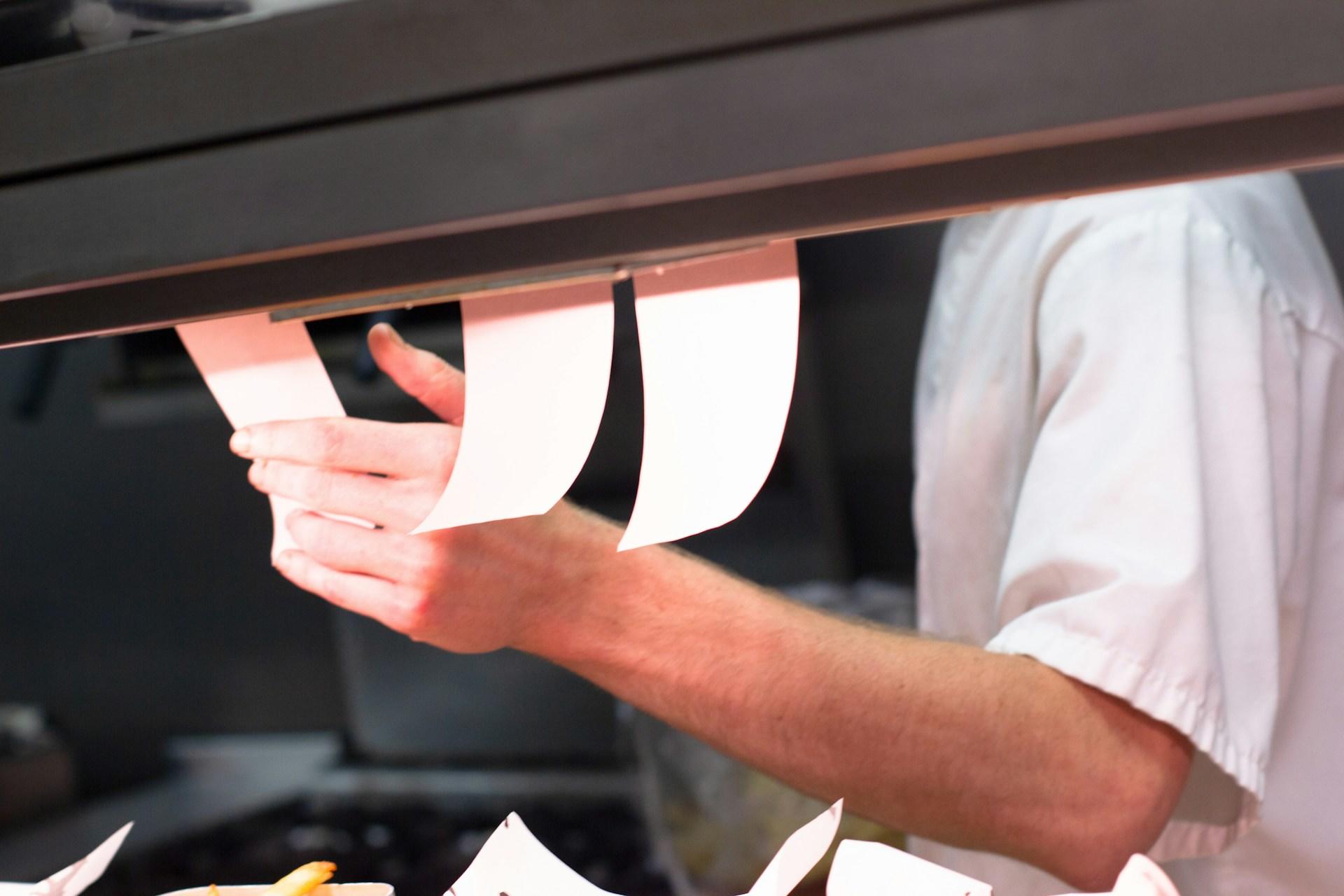
Sous Chefs
Sous chefs play a crucial role in kitchens, serving as the second-hand to the head chef and overseeing many different aspects of the production line. Their main responsibilities cover a wide range of tasks, all in an attempt to make sure the entire process goes smoothie and delivers the highest quality food possible.
Responsibilities of a Sous Chef
One of the main responsibilities of a sous chef is to help the head chef with menu planning, choosing meals and developing new recipes. They help decide which foods would be right for their restaurant, when they should be available, and whether they are the correct prices and portions.
In addition to menu planning, they are also responsible for overseeing all of the kitchen staff, making sure that they are coordinated when doing their tasks.
By ensuring all of the food is prepared and cooked correctly, they can keep the food up to date with the restaurant's standards and expectations.
They also are there to help new staff with training and guidance so that they can gain a better understanding of the job, improve their skills and fit into the team well.
Skills of a sous chef and its benefits
Being a Sous chef is demanding and does require skills in different areas such as:
- Strong leadership
- Organizational skills
- Time management
- Focus under pressure
- Cooking skills
Due to the demanding nature of the job, there are many great benefits to being a sous-chef. Working as a sous chef provides you with valuable leadership skills and experience, providing opportunities for career advancement in the industry.
The job also provides the chance to develop management skills, oversee kitchens, and take on higher levels of responsibility, with chances to advance to higher positions such as head chef or manager.
The job also has high wages and benefits due to the demand of skilled and reputable sous-chefs who have lots of experience and knowledge of the industry. It is also a great choice for individuals who want a stable job and want security in the field.
Head Chef
Head chefs, also known as executive chefs, are in charge of the culinary team in restaurants, hotels, or other catering companies. They oversee all aspects of the kitchen, from choosing the menu, developing recipes to preparing food and presenting it.
They are tasked with making all of the big choices in a kitchen, as well as making sure everything runs smoothly and runs successfully.
Becoming a head chef requires a large variety of skills important to successfully lead a great kitchen. Some of the main key skills required.
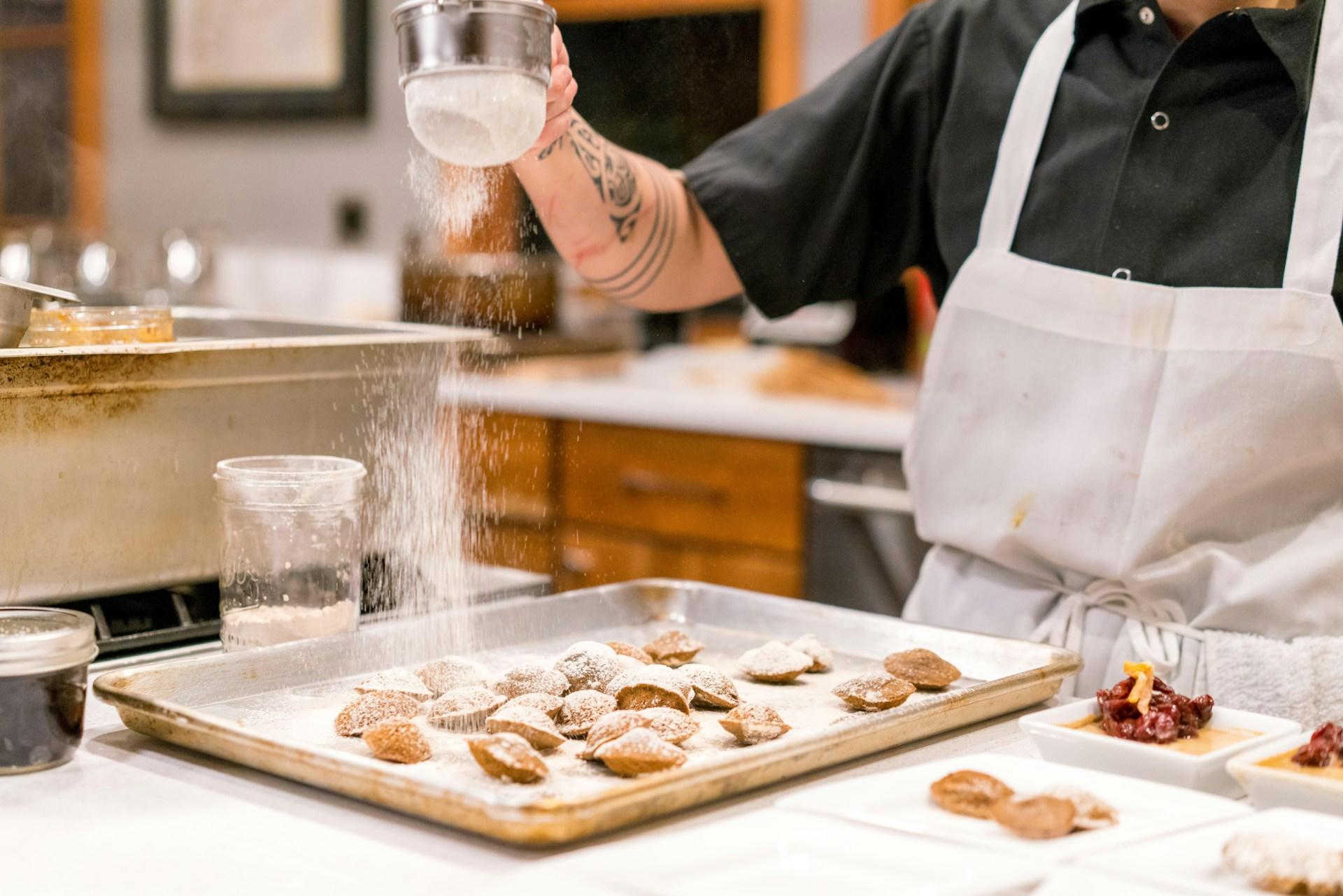
Responsibilities of the head chef
One of the main responsibilities of the head chef is creating a good menu that fits into the criteria of the restaurant's standards. They will be tasked with choosing the correct recipes as well as developing new ones.
They must base the decisions for the recipe off of multiple factors such as the season, customer preferences, budget and suitability. They often work alongside sous chefs to create the perfect menu for the visions of the establishment.
In addition to menu planning, they are responsible for managing the kitchen staff and ensuring that all of the food is to the highest possible standard.
When managing the kitchen staff, they typically decide what areas they would work best in as well as who they would work effectively with, based on their skills. They provide leadership and support to sous chefs, line workers and other kitchen staff.
Head chefs are also in charge of keeping inventory, so making sure that all of the ingredients are stocked up and are correct, whilst making sure that everything is used by the expiration date so that there is no waste.
Culinary school can be very useful to learn about all these things, but it's not the only way.
Benefits of being a head chef
Being a head chef comes with many positives and benefits, with some being the same as line chefs or sous chefs, and some being exclusive to the position.
Some of the exclusive benefits are that it gives you freedom to develop your own culinary style and unique dishes that express your talent and personality, which can be incredibly rewarding for chefs who enjoy making food and expressing themselves through it.
Another great benefit exclusive to being head chef is that it is a highly paid job, and has a competitive salary, depending on reputation and style. Head chefs at Michelin star restaurants often get paid the most due to the prestigious award that is known for the highest quality dining experience.
Private Chefs
Private chefs offer personalized services to individuals or families, typically working in private residences, yachts, or even planes. Their primary responsibility is to create customized menus, prepare meals, and provide a high quality dining experience tailored to the preferences and dietary needs of their clients.
Responsibilities of a Private chef
Private chefs often work closely with their clients to develop menus that are suited to their tastes, dietary restrictions, and preferences, taking into account factors such as ingredient availability and seasonality.
They are also often responsible for grocery shopping, organizing the kitchen, and meal planning, ensuring that their clients have everything they require for a seamless and enjoyable dining experience.
They may also work alongside other household staff such as housekeepers or butlers to ensure that each meal is served on time with no difficulties.
Benefits of being a private chef
One of the main benefits is that you get to experiment with different recipes and be creative with your meals. They are able to create personalized menus and try new ingredients and techniques.
Sometimes, when clients are feeling like having a different type of food, you are able to constantly try out different styles of dishes. Meaning that you will never have to repeatedly make the same dish, so each day will be a fresh new experience that allows for constant growth and development.
It also allows a more flexible schedule than a typical chef in a restaurant. Private chefs are able to set their own hours and work arrangements, allowing them to achieve a better work-life balance.
This flexibility may be appealing to chefs who want more control over the meals they make and their work schedule.
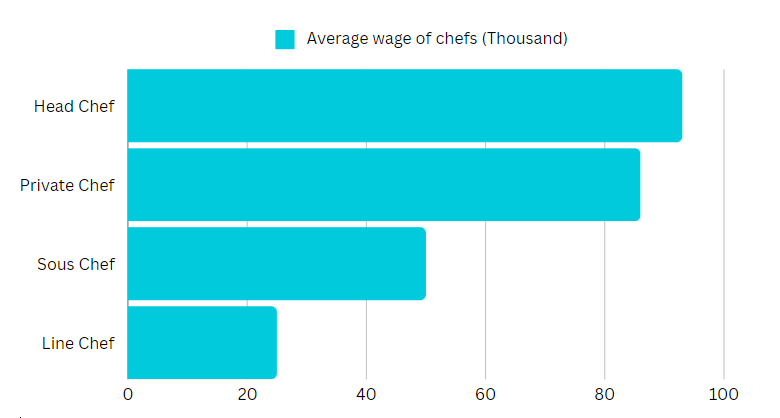
Ending note
Thank you for reading this guide on the different types of chef jobs. We hope it helped and was useful. If you want to have a look at similar articles about chef certificates, the culinary business or even a completely different topic, make sure to check out our other articles here on the Superprof blog.
We also recommend you check out our premium service, which aims to connect students with ideal tutors based on their needs and location.
Thank you very much, see you soon!
Summarize with AI:

